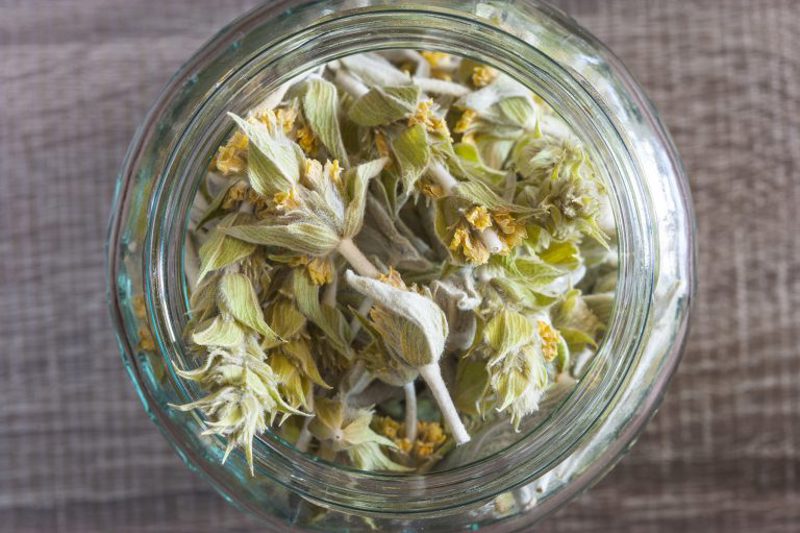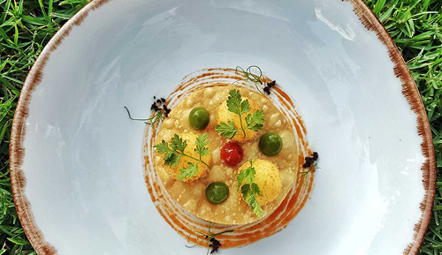
Malotira, known also as tsai tou vounou (tea of the mountains) is a wild plant similar to chamomile that grows on the highest slopes of Crete’s mountain ranges. Found at an altitude of between 800 and 2000 meters above sea level, it’s harvested usually in July, when its small yellow flowers appear. It was Crete’s rulers for 400 years, the Venetians, who gave the plant the name we know it by today, after recognising its remarkable healing properties. The Venetians described it with the Italian words male (meaning malady), and tirare (to extract), and for centuries Malotira – with its soft downy stem, light grey-green leaves and tiny yellow flowers – has been gathered by hand each summer in the highlands of Crete.
The dried plant’s medicinal properties, once transformed into tea, are known to help digestion, and are highly recommended as a treatment for the common cold. Rich in antibacterial substances and antioxidants, there’s also strong evidence that it strengthens the body’s natural immune system. Malotira’s scientific name Sideritis syriaca stems from the word sideros (Greek for iron), and some believe the latin name sideritis, derived from the Greek, meaning ‘He who is made of iron’ was given to the plant to describe its ability to heal wounds caused by iron weapons.
Today Malotira is considered a rare species, largely due to excessive gathering and over-grazing, but it’s found in most grocers and supermarkets. For fresher Malotira and better value, try your local farmers’ market (laiki). To make the tea, every part of the plant is used, but the flower buds hold the plant’s most potent medicinal properties. Steeped in boiling water for a few minutes, locals often add sprigs of marjoram, dittany or sage to the infusion.
Dictamnus tea is another popular herbal tea of Crete. It’s made from the dried leaves and flowers of the herb Origanum dictamnus, known also as ‘dittany’. The name Dictamnus comes from the fact that the herb was collected in the Dikti mountain range, south of Heraklion. Dictamnus is also called ‘eros’, which in Greek means love, as the Ancient Greeks considered it to be the herb of love, youth and euphoria!





















